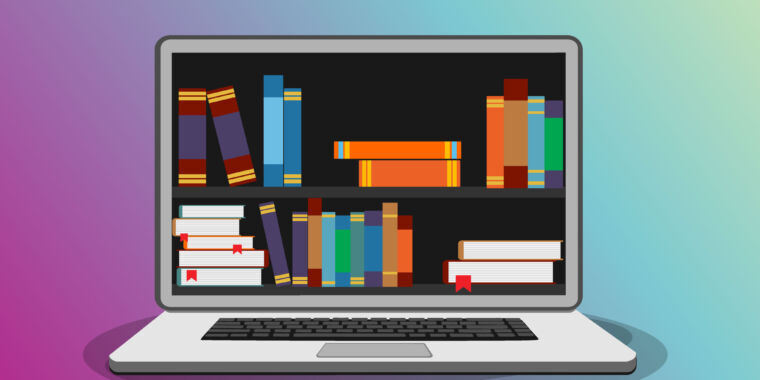In an open letter to publishers, more than 30,000 readers, researchers, and authors begged for access to the books to be restored in the open library, claiming the takedowns dealt “a serious blow to lower-income families, people with disabilities, rural communities, and LGBTQ+ people, among many others,” who may not have access to a local library or feel “safe accessing the information they need in public.”
During a press briefing following arguments in court Friday, IA founder Brewster Kahle said that “those voices weren’t being heard.” Judges appeared primarily focused on understanding how IA’s digital lending potentially hurts publishers’ profits in the ebook licensing market, rather than on how publishers’ costly ebook licensing potentially harms readers.



It doesn’t matter if the copy is all at once. Every bit of the file touching your computer involves multiple copies. It is fundamentally impossible to share any file without copies being made. The original digitization is already probably illegal because it’s for the purpose of distribution and not one of the fair use exceptions. Again, this is exactly identical to the claim that pirate sites providing streaming is legal.
Libraries do not make copies. Legally, it’s exactly that simple. There is no ambiguity in any way. It is copyright infringement under current law. It is not possible to defend this without throwing current law in the trash and starting over from scratch. If the judge did somehow rule in IA’s favor the Supreme Court could overrule him in about 30 seconds with basically no deliberation. Courts do not have the authority to change the law.